Imagine Fox Cities to help shape a living vision for the area
How do you define well-being in a community? Imagine Fox Cities is a new, inclusive community-wide initiative created to be more intentional about shaping the future of the Fox Cities to improve individual and collective well-being.
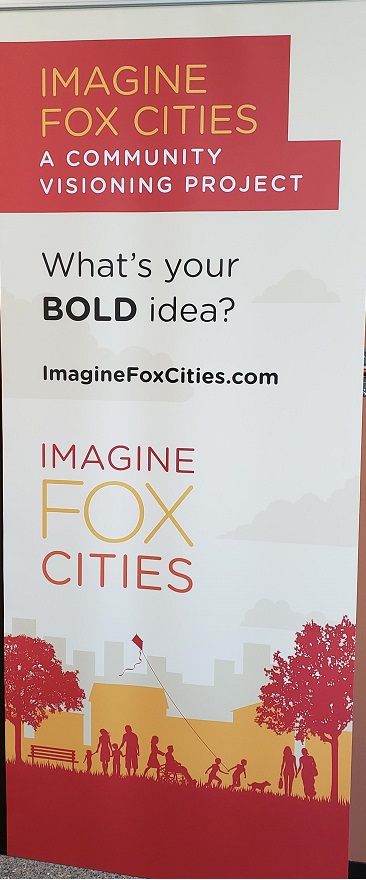 Many communities define well-being differently but most include common threads of housing, safety, health care, lifelong learning and more.
Many communities define well-being differently but most include common threads of housing, safety, health care, lifelong learning and more.
The initiative was created by community members, for the community, and will be an ongoing initiative to ensure the community maintains or improves what is valued, with an eye on the future. Once opportunities for any improvement are discovered, Imagine Fox Cities will then move forward on developing a collaborative, comprehensive community action plan including a framework for future decisions based on identified shared values.
The initiative was officially announced this morning at a news conference held at the Boys & Girls Clubs of the Fox Valley in Menasha:

Beth Flaherty, co-chair, Imagine Fox Cities
“We are currently in the discovery phase which means that the community’s input is needed as we recognize the many interdependencies of neighborhoods, generations, diversity, values and aspirations,” says Beth Flaherty, co-chair of the Imagine Fox Cities initiative. “This is a completely open process, meaning, there are no preconceived notions of where we need to be or what we need to do other than focusing on making the Fox Cities an even more attractive place to live, work, and grow old.”
Over the next few weeks, Imagine Fox Cities will host a number of Community Conversations as well as have online surveys available so community members can help define what “well-being” in the Fox Cities means to those who live, work and go to school here.
The Imagine Fox Cities process includes four phases: engaging and discovery, discerning and reflecting, convening and action. During the entire process, Imagine Fox Cities hopes to engage with new leaders and voices.
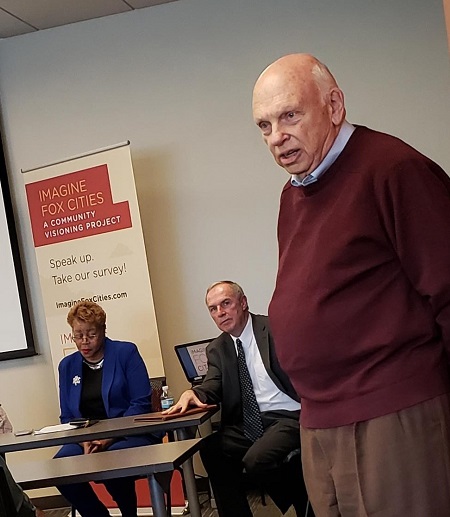
Walter S. Rugland
“We will take the next six months or so to really listen to what our community has to say,” says Walt Rugland, whose father, Walter L, Rugland, formed the Community Foundation for the Fox Valley Region in 1986. “We want to hear from all segments of the community including those of different ages, races, genders, religions and incomes. It’s important our data and conversations represent the community as a whole.”
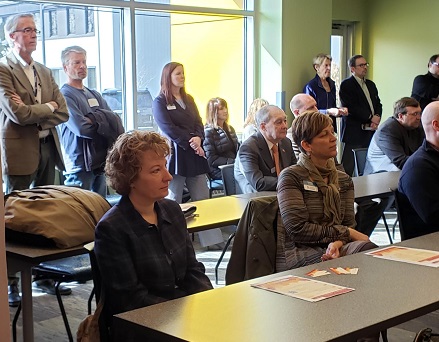 “Fortunately, we live in a community where many other organizations are also doing their part to improve the lives of those who live in the Fox Cities and we look forward to gaining their feedback so we can complement and expand upon what their missions are also envisioning and accomplishing for the future of the Fox Cities,” says Mike Weller, co-chair. “As Helen Keller said, ‘Alone we can do so little; together we can do so much.”
“Fortunately, we live in a community where many other organizations are also doing their part to improve the lives of those who live in the Fox Cities and we look forward to gaining their feedback so we can complement and expand upon what their missions are also envisioning and accomplishing for the future of the Fox Cities,” says Mike Weller, co-chair. “As Helen Keller said, ‘Alone we can do so little; together we can do so much.”

Mike Weller, co-chair, Imagine Fox Cities
Many businesses and organizations are supporters of the Imagine Fox Cities community visioning project and include Appleton Alliance Church, Appleton Public Library, Bank of Kaukauna, Boldt, Boys & Girls Clubs of the Fox Valley, Community Foundation for the Fox Valley Region, East Central Wisconsin Regional Planning Commission, enVision Performance Solutions, Generative Local Community Institute, Kimberly-Clark, Lawrence University, Mike Weller & Associates, Miller Electric Mfg, NAI Pfefferle, Red Shoes, ThedaCare, Thrivent, United Way Fox Cities and US Venture.
Imagine Fox Cities will share common themes it finds from the collected data once it is compiled at a summit later this summer. For more information or if you’re interested in attending a Community Conversation or filling out a survey, please visit ImagineFoxCities.com.
Want more stories like these? Sign up to get in The Loop. And don’t forget to invite a friend to get in The Loop!
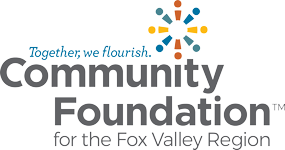

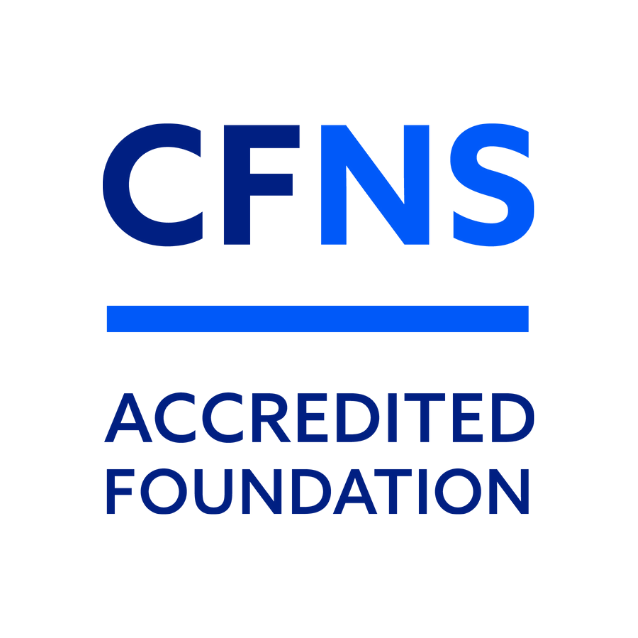
Please talk with me about making our community dementia friendly and inclusive. Fox Valley Memory Project has lots of good ideas about this. Also, I hope you’re in contact with AARP Wisconsin’s Livable Cities initiative (formerly called Age-Friendly when launched by the WHO in 2007). I’m happy to see the intergenerational emphasis—there are good data on children and grandchildren of folks having dementia.